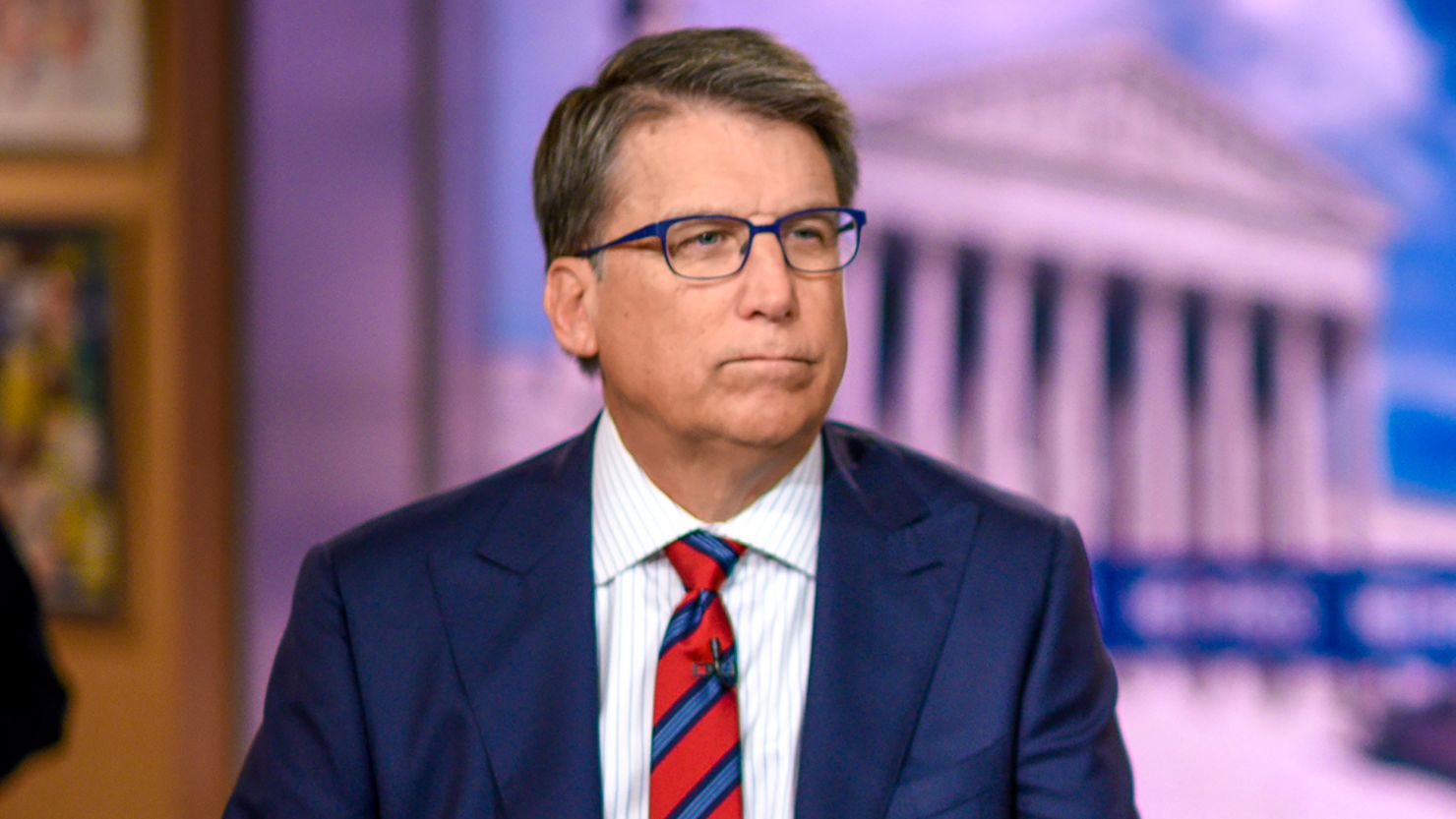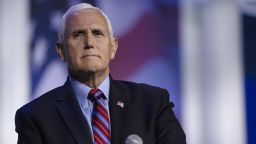North Carolina Senate candidate Pat McCrory is going after his top rival in the Republican primary, accusing him of being “friendly” toward Russia and Vladimir Putin.
In his first statewide television ad, McCrory uses recent comments from US Rep. Ted Budd to depict him as unserious about foreign policy.
“While Ukrainians bled and died, Congressman Budd excused their killer,” McCrory, a former one-term governor, says in the new spot. Interspersed in McCrory’s voiceover are two separate remarks from Budd just days after Russia’s invasion of Ukraine began in late February.
In one clip from Fox News, Budd assesses that Putin had “strategic reasons” for wanting to “protect his southern and western flank.”
In another, during an interview with a local TV station, Budd calls Putin a “very intelligent actor.” While the McCrory ad does not include Budd’s additional remark in the interview that Putin is “evil,” the comment echoes former President Donald Trump’s earlier praise of the “genius” of the Russian leader’s moves just before the invasion.
Trump has endorsed Budd in the competitive North Carolina GOP Senate primary to succeed retiring Republican Sen. Richard Burr.
“These are serious times and we need serious senators,” McCrory says in the ad. “I’m Pat McCrory. I don’t compliment our enemies.”
In the ad, McCrory also criticizes Budd for voting against sanctions on Russia. Budd has voted against sanctioning Russia in the past but announced his support this week for a bill banning Russian oil imports.
The Budd campaign shot back at McCrory in a statement to CNN.
“Ted Budd presented the sort of level-headed assessment of a foreign crisis you would expect from a US Senator because he knows these are serious times that require strength and substance, not the empty soundbites preferred by career politicians like Biden and McCrory,” said Jonathan Felts, a senior adviser to Budd.
While Trump has driven GOP political messaging on a host of issues for years, the former President has found himself out of step with the vast majority of Republican voters on the Russia question. Putin’s toxicity is evident in recent polling, with a February survey from Fox showing just 9% of US voters holding a favorable view of the Russian leader, while 82% said they viewed him unfavorably. Among Republicans, 81% had an unfavorable view of Putin – including 59% who said they had a strongly unfavorable opinion.
The overwhelming opposition to Putin across the political spectrum has not been lost on Republican leaders with an eye to the midterm elections. House Minority Leader Kevin McCarthy, looking to lead the GOP to a majority this November, told CNN’s Manu Raju on Wednesday that he disagreed with Trump’s Putin assessment.
“I do not think anything savvy or genius about Putin. I think Putin is evil, I think he’s a dictator, and I think he’s murdering people right now,” McCarthy said, without mentioning the former President by name.
And when asked last week about Trump’s comments on Russia, Senate GOP leader Mitch McConnell called Putin a “ruthless thug.”
Republican leaders in Washington, from the anti-Trump Rep. Liz Cheney to populists like Sen. Josh Hawley, have been sharply critical of Putin. Several GOP candidates in key races have expressed similar sentiments about Putin and the Russian invasion, though many also criticize the Biden administration’s response as ineffective.
“Talking and acting tough on Russia and foreign policy crises have been terra firma for Republicans for generations,” said Doug Heye, a Republican strategist.
The relative unity within the GOP over Putin is a notable aberration from the party’s shift on foreign policy under Trump, who made ending “endless wars” a centerpiece of his 2016 campaign for the presidency and promoted a doctrine of “America First” while in office.
As part of his approach, the former President repeatedly praised Putin, while criticizing the NATO alliance as “obsolete.” Some conservative allies of Trump in the media embraced Putin as an opponent of the decadence and political priorities of Western elites. Cheney recently labeled those allies as the “Putin wing of the GOP.”
But amid Russia’s aggression toward Ukraine, the relatively few Republican candidates who have aligned themselves with Trump’s posture have found themselves on a political island.
In Ohio, for instance, Senate candidate J.D. Vance said in a podcast interview he didn’t “really care what happens to Ukraine one way or another.” He followed that up days later with a statement calling Russia’s assault on Ukraine “unquestionably a tragedy” and referring to Putin as “an evil man,” while blasting foreign policy “elites” and arguing against “military intervention from American or NATO troops.”
For his part, Trump has sought to pivot away from his initial praise of Putin’s moves, issuing a statement last week calling the conflict in Ukraine a “terrible war” while insisting the aggression “would have never happened” if he were in the White House.
In the minds of GOP primary voters, Putin’s invasion has clarified things, says Republican pollster Glen Bolger.
“To me, I don’t think voters see it as a partisan issue. They’re rooting against a dictator,” Bolger said.




